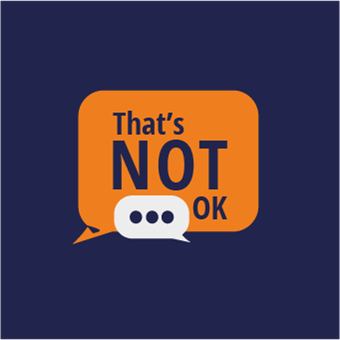Criminalizing Coercive Control

My guest blogger is Caron Kipping, a Divorce and Separation Coach in Great Britain and the author of “Recognition to Recovery.” Caron specializes in supporting people currently in or who have been in abusive/controlling relationships. She has been through this herself and supported many women and men in similar situations over the past 13 years through her work as an Independent Domestic Violence Advocate. She is passionate about helping people create a peaceful and positive future. I asked Caron to share about Great Britains’ criminalization of coercive control as well as her insights in responding to it.
Coercive Control and UK Law
Coercive control has been illegal in the UK since 2015 – Section 76 of the Serious Crime Act 2015 and part of the over-arching Violence Against Women and Girls Strategy. https://www.cps.gov.uk/legalguidance/controlling–or–coercive–behaviour–intimate–or–family–relationship
The UK government defines coercive control as:
- Coercive behavior is an act or a pattern of acts of assault, threats, humiliation and intimidation, or other abuse that is used to harm, punish, or frighten their victim
- Controlling behavior is a range of acts designed to make a person subordinate and/or dependent by isolating them from sources of support, exploiting their resources and capacities for personal gain, depriving them of the means needed for independence, resistance and escape, and regulating their everyday behavior A conviction can result in a custodial sentence of up to 5 years in prison.
Typical coercive and controlling behaviors can include:
- Isolating the victim from friends, family, and other forms of support;
- surveillance by continuous texts and calls;
- making the victim believe they are dependent on their abuser
- controlling finances;
- micro-managing day-to-day activities;
- threatening behavior, humiliation, degradation, and blackmail;
- identity theft;
- stalking;
- stealing possessions; and
- depriving the victim of receiving care or support from practitioners.
The Challenges of Prosecuting
So, the theory says that coercive control is illegal, it is punishable, but the challenge that comes with this type of abuse is that it is subtle, often difficult to evidence and prove and collating enough evidence to get a charge can be extremely time-consuming and difficult. It can be difficult to prove emotional abuse, you may not have ever spoken about your situation to anybody before, never mind the police and you may have difficulty finding evidence of financial abuse if you have never had access to your own bank account.
If you do get as far as getting a charge, getting it to a conviction can be challenging – the threshold for a criminal conviction is to prove ‘beyond reasonable doubt’.
The court process can often take many months to come to fruition, which many women say means they feel stuck and unable to move on with their life, with constant underlying worry about testifying against the very person that has abused them for so long.
We all got excited when the stalking legislation came in but then quickly realized that most abusers were getting charged with lesser offenses of harassment which is easier to prove and some say more likely to get a conviction.
Does criminalizing coercive control mean that abusers try even harder to disguise their behavior? They already have a million and one excuses to disguise, lie and justify their behavior.
‘’I only look after the money because I am better at it. ‘’
‘’ I only did it because I loved her so much’’
‘’ I can’t trust her to look after the kids, I reported her to social services because her mental health is getting worse..’’
On it’s own these statements may seem like minor criticisms or even like the abuser may even be trying to be helpful or even kind, simply trying to make things easier for their partner. Professionals struggle to see through the charming exterior of some perpetrators – falling for the ‘blag’, the distraction and the excuses and if the professionals can’t see it then how is a court supposed to see it?
My role is to give people realistic expectations when it comes to deciding whether or not to pursue a criminal case against their abuser. Worst case scenario – if he/she gets off completely at least it is still on their record, still evidenced and you have still had the opportunity to tell everyone what he did, to feel heard, to let them know that you aren’t scared anymore and aren’t going to put up with that behavior anymore. For some, that is enough.
How do we stop coercive control?
Does the threat of going to prison mean they will stop? Unlikely. It’s a challenge, where do we focus our efforts? On supporting the survivor, on holding perpetrators to account, on education? Some might say it’s impossible for abusers to change their behavior, so what we should perhaps be focussing our efforts on is educating people about coercive control, helping them understand how to recognize the signs of controlling behavior so they can get out sooner, or better still not get into those kinds of relationships in the first place.
When abusers are arrested, we should charge them with the offense they deserve to be prosecuted on and ensure that the punishment fits the crime – is a community sentence with a bit of unpaid work or a perpetrator program really a strong enough deterrent?
There is no simple solution I feel – we need to improve our response to all forms of domestic abuse on so many levels and it needs to come from the ‘top down’ – from Government, courts, policing, education and from individuals in our communities to ‘call it out’ when they see or hear something that feels wrong, to reach out to someone they are worried about, before it’s too late.
You can find Caron on these social media sites and on her website www.caronkippingcoaching.com
https://www.facebook.com/caronkippingcoaching
https://www.linkedin.com/caronkipping
https://www.instagram.com/caronkippingcoaching
Tel: 07899991304 or email info@caronkippingcoaching.com

